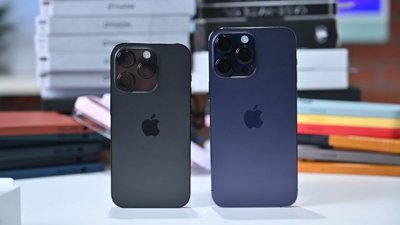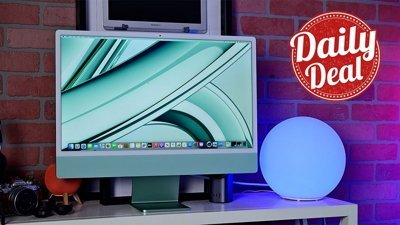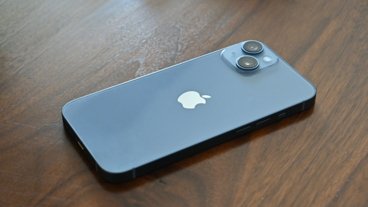MasterCard acknowledges it needs Apple to bring NFC payments into the mainstream
In an interview with Fast Company , Ed McLaughlin, MasterCard's head of "emerging payments," noted that "we're rapidly moving to a world beyond plastic," but added that progress in rolling out electronic payments has incremented at a slow pace.
Electronic "tap to pay" systems typically rely on NFC (near field communications), a standardized technology that can enable smartphone users to bring their NFC-equipped phone into proximity with a contactless payment device, such as at a checkout line or on a vending machine or transit turnstile.
MasterCard has worked to roll out its own PayPass system using NFC-equipped cards, in tests that began nearly ten years ago in the US. The NFC cards include an embedded, unpowered chip read by an active reader, but popularity for the system hasn't been enthusiastic.
Visa has its own system it calls PayWave, which it also licensed to Google. At the end of 2010, Google announced NFC support in Android 2.3 Gingerbread, allowing developers to interact with static NFC tags similar to optical reading of barcodes.
The company also launched the Google Wallet initiative last summer, intended to enable NFC-equipped smartphones to make purchases at a variety of merchants as an alternative to carrying a credit card, working with both PayWave and PayPass.
Apple needed for Critical Mass
Austin Carr, who interviewed McLaughlin, noted in his report that in speaking to merchants who had installed Google Wallet devices, none could report that anyone had ever used the system, with one explaining that it was installed "because Google gave it to me."
Getting buyers to actually use NFC is, McLaughlin explained, "a combination of having a critical mass of the merchants, which is what you're seeing right now, and getting devices into the hands of consumers."
He added, "I don't know of a handset manufacturer that isn't in process of making sure their stuff is PayPass ready," and when asked if that included Apple, he backtracked, "Um, there are...like I say, [I don't know of] any handset maker out there. Now, when we have discussions with our partners, and they ask us not to disclose them, we don't."
When pushed to say whether "the contactless payments industry needs Apple to hit critical mass," McLaughlin answered, "Well, anytime someone with a major base moves forward, it advances what you're doing. So of course."
At CES earlier this month, Bill Gajda, Visa's Global Head of Mobile Product told Fast Company, "I can't tell you when Apple is going to put NFC in the next version of the iPhone, but we've had discussions with them around the PayWave standard and they've asked to look at our specification and certification process so that when they decide to do something those lines of communication are open."
Apple's electronic payments strategy yet to unfold
The report also noted that "Visa's hoping to make itself the go-to point for this solution, so 'handset manufacturers don't have to do a deal with 26,000 banks.'"
Unlike individual banks that issue cards through Visa, MasterCard or other credit card agencies, Apple has the ability to bill users' transactions to their own accounts, as it already does with iTunes and the App Store.
This could result in Apple becoming an alternative to MasterCard, Visa or eBay's PayPal for handling electronic payments outside of its own, broadening its relationship with customers outside of online and retail transactions to also cover their other purchases.
Google had originally negotiated to partner with eBay to handle its Google Checkout/Wallet service, but during negotiations with its PayPal executive Osama Bedier, Google offered him a job instead and abandoned plans to partner with eBay, using Bedier to build a competing system for Google instead, using his knowledge of eBay's future plans.
PayPal subsequently sued Google over misappropriation of trade secrets and breach of fiduciary duty, and banned Google Wallet as a form of payment on eBay.
 Daniel Eran Dilger
Daniel Eran Dilger










 William Gallagher
William Gallagher
 Mike Wuerthele
Mike Wuerthele
 Christine McKee
Christine McKee

 Andrew Orr
Andrew Orr
 Sponsored Content
Sponsored Content
 Malcolm Owen
Malcolm Owen







